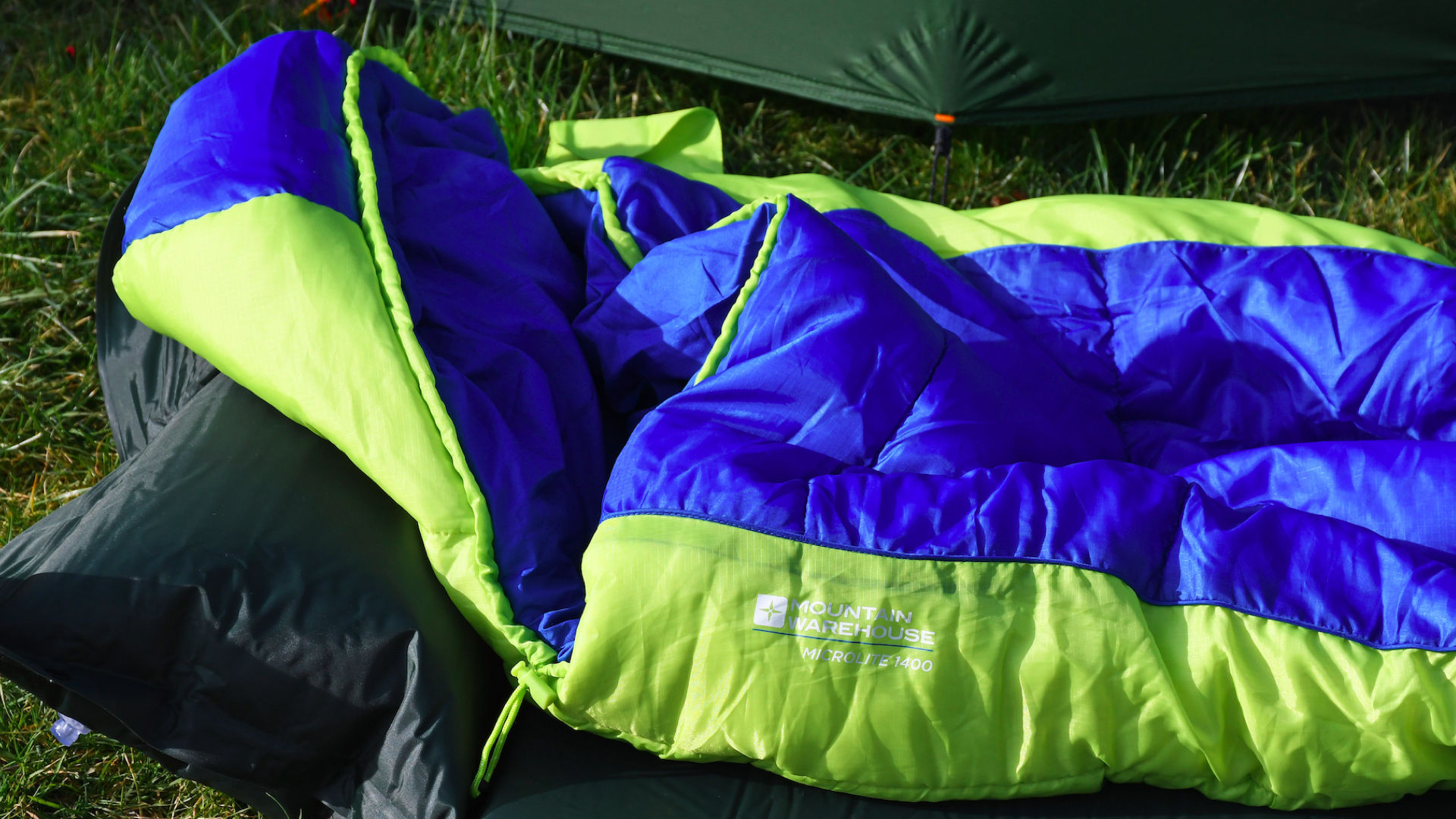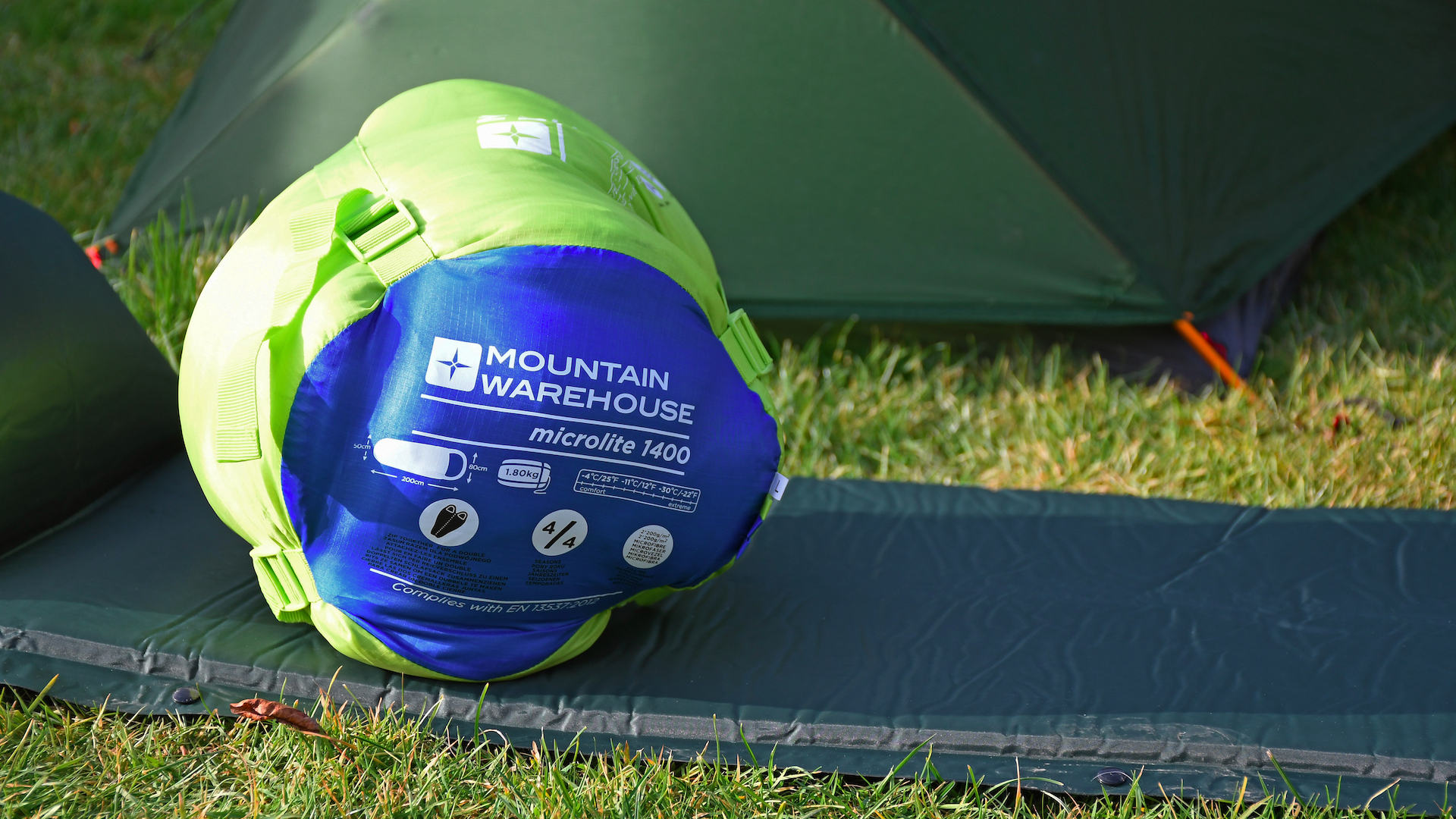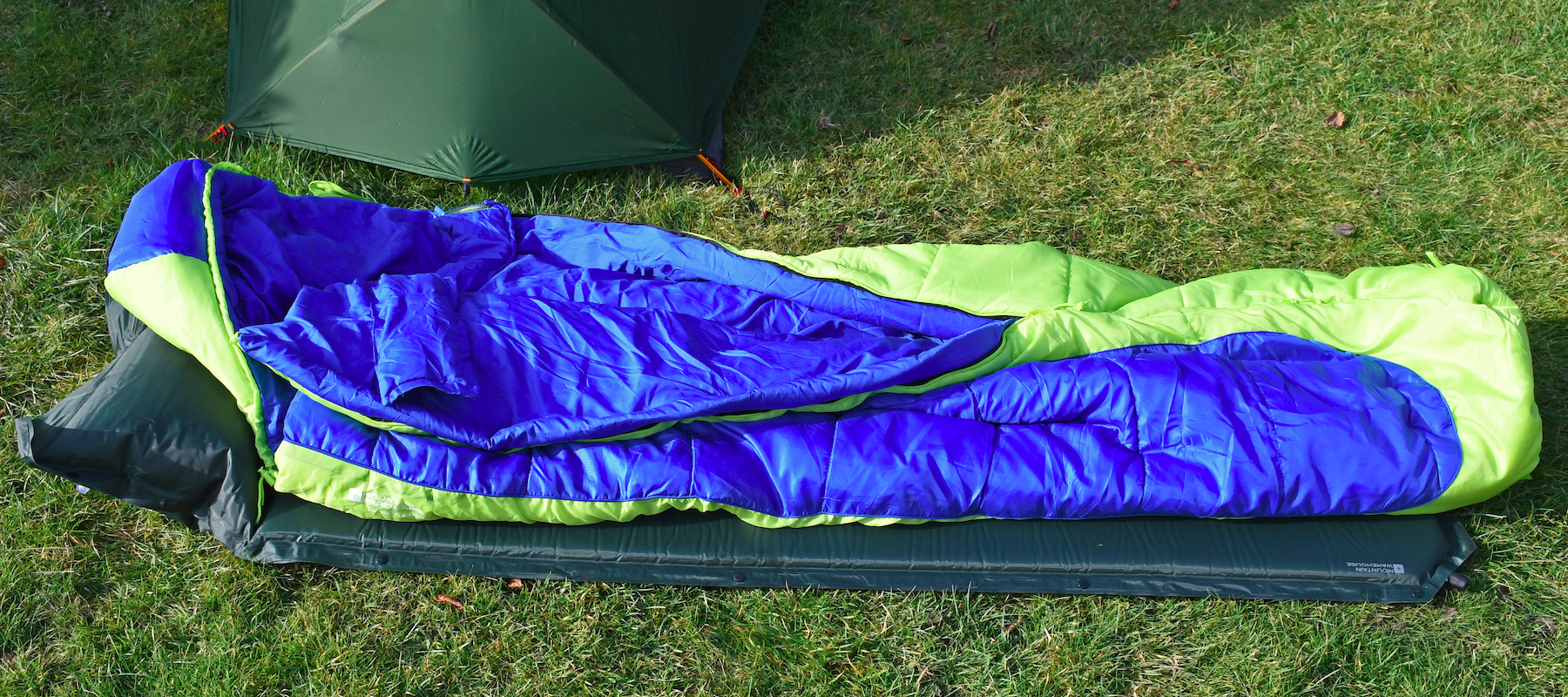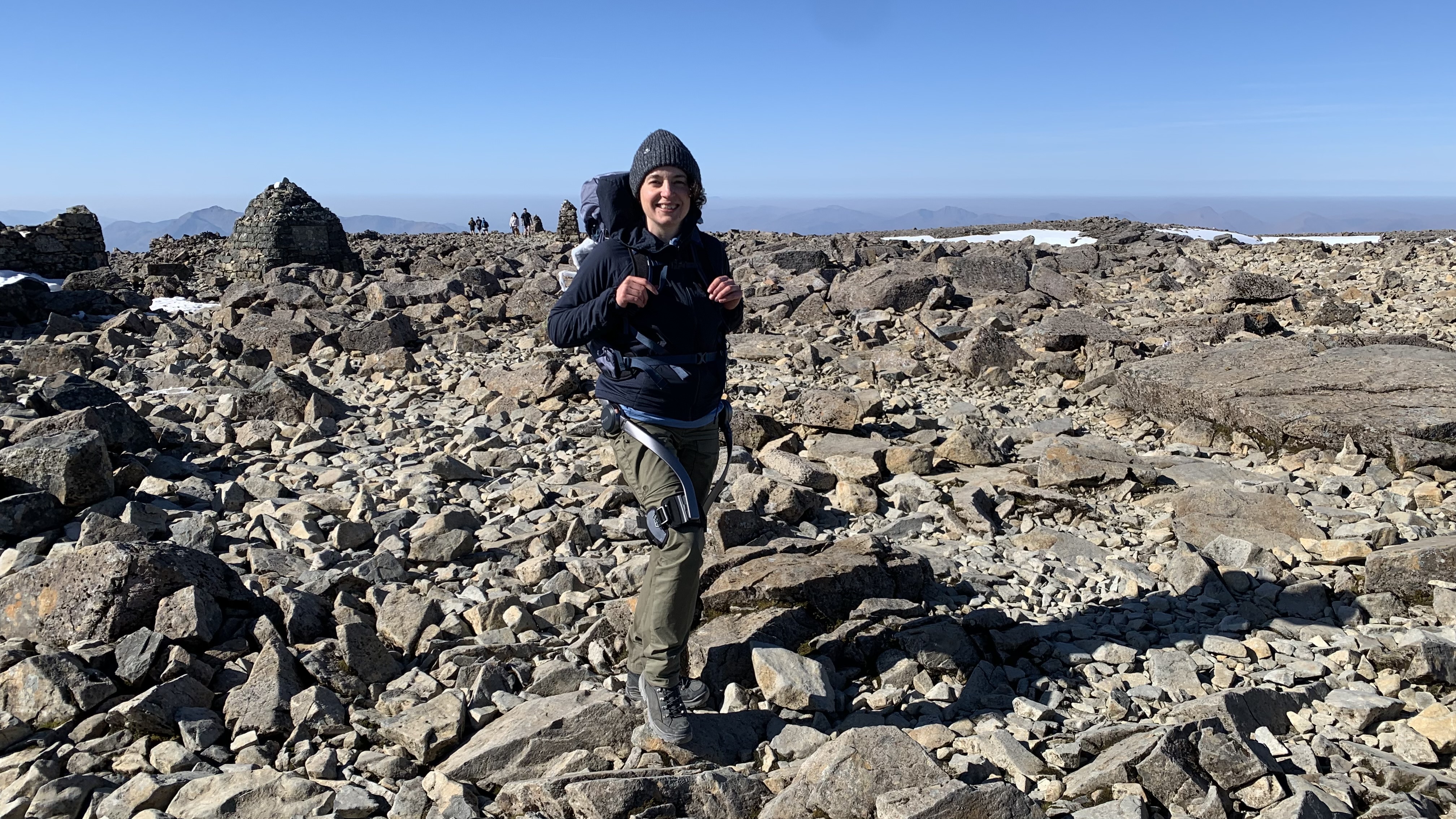Advnture Verdict
The perfect sleeping bag for newbie three- or four-season campers who prioritize a warm and comfortable night’s sleep over ultralight performance, the Microlite 1400 is an affordable and impressive piece of kit. It’s tough, doesn’t require much care and can be used in multiple outdoor scenarios across the whole year, but is best suited to early spring and late fall camping.
Pros
- +
Warm enough for four-season camping
- +
Retains thermal properties when damp
- +
Left / right zip options
- +
Well featured
- +
Excellent price
- +
Easy to look after
Cons
- -
No recycled content
- -
Not as lightweight or compressible as down
- -
Not as comfortable as down
You can trust Advnture
Mountain Warehouse Microlite 1400: first impressions
One of the biggest things in the Mountain Warehouse Microlite 1400’s favor is irs price. One of the biggest barriers to entry for fledgling campers is the often-prohibitively expensive price of good kit, especially kit designed for use outside of the summer months. For spring, fall and winter you need equipment that can supply real warmth, and nothing puts newcomers off going camping again like an uncomfortably cold first experience. But even the best sleeping bags – even four-season ones – don’t have to cost a fortune, as this excellent offering from Mountain Warehouse proves.
• List price: £80 (UK)
• Style: Synthetic fill backpacking bag
• Shape: Mummy
• Temperature rating: comfort: -4°C / 25°F ; minimum: -11°C / 12°F
• Weight (regular): 1,900g / 67oz
• Length: regular: 200cm / 79in (max user height 180cm / 5’ 9”); long: 215cm / 84.5in (max user height 195cm / 6’ 4”
• Pack size (regular): 20cm x 44cm / 8in x 17in
• Filling: Synthetic microfiber (100% polyester)
• Zip options: Left or right
• Colors: Blue or burnt orange
• Compatibility: Cold weather camping, backpacking or car camping
The Microlite 1400 is ideal for both cold-weather camping neophytes, and those who are more experienced but operating on a budget and in need of a new bag.
It might not be as featherlight, packable or quite as sumptuous feeling as a down-filled sleeping bag, but it is certainly light enough to be taken on backpacking adventures, and is more than capable of keeping you warm in most conditions likely to be encountered during the vast majority of the year in non-alpine terrain.
Available in versions to suit left- or right-handed people, the two-way zip can be opened from the bottom or top (to give you ventilation options) and is backed by a storm flap to keep breezes out. It boasts a good, shaped hood, which can be pulled tight around your face, and has inner pockets for keeping valuables safe, or phones warm and handy. It comes in two lengths, regular and long, and the ripstop outer fabric is robust and should last for many chilly seasons.
Mountain Warehouse Microlite 1400: in the field

I tested the Mountain Warehouse Microlite 1400 sleeping bag on a couple of campouts during the tail end of winter, when the temperatures took a late-season dip. The thermometer didn’t get down to the manufacturer’s published comfort limits for this bag, but they certainly did go south of zero and I remained toasty warm all night. I think the range is about right (see sleeping bag comfort rating explained).
But now we’re beyond the worst of winter I’ll still be keeping this sleeping bag to the front of my kit cupboard, because it’s perfectly suited to those early spring camping escapades, when days are getting warmer but nights can still be super shivery if you don’t have the right gear. Likewise, it will be ideal in the fall. In fact, I think this bag will see use almost all through the year, especially because the two-way zipper allows you to let plenty of air in and pop your feet out the end if you start overheating. You can also use the bag as a duvet, and it zips together with other bags of the same family to make a double doona if you’re camping with your nearest and dearest.

Beside the thermal performance of the Microlite 1400, which is particularly impressive for its price point, I was really blown away by all the features this bag boasts. I’m a lefty, and it’s nice to have the option of getting a bag with the zip on the right so I can locate it easily and quickly in the dark.
The hood is a good tailored shape, and once pulled in it kept all the warm air in and any chilly breezes out. There was plenty of room in the foot box, and overall it was a comfortable bag that provided me with a good night’s sleep each time I used it.
With synthetic microfill and a ripstop outer material, it’s pretty hardwearing and built to last for multiple years. Such bags are really easy to look after, you don’t need to be precious about how they’re stored or used, and they even keep you warm when they get wet. It’s a pity, though, that no recycled material has been used. And I’m not overly enthusiastic about the colors, but this latter point is a very minor grumble. All in all, I was very impressed.

Author of Caving, Canyoning, Coasteering…, a recently released book about all kinds of outdoor adventures around Britain, Pat has spent 20 years pursuing stories involving boots, bikes, boats, beers and bruises. En route he’s canoed Canada’s Yukon River, climbed Mont Blanc and Kilimanjaro, skied and mountain biked through the Norwegian Alps, run an ultra across the roof of Mauritius, and set short-lived records for trail-running Australia’s highest peaks and New Zealand’s Great Walks. He’s authored walking guides to Devon and Dorset, and once wrote a whole book about Toilets for Lonely Planet. Follow Pat’s escapades on Strava here and Instagram here.

